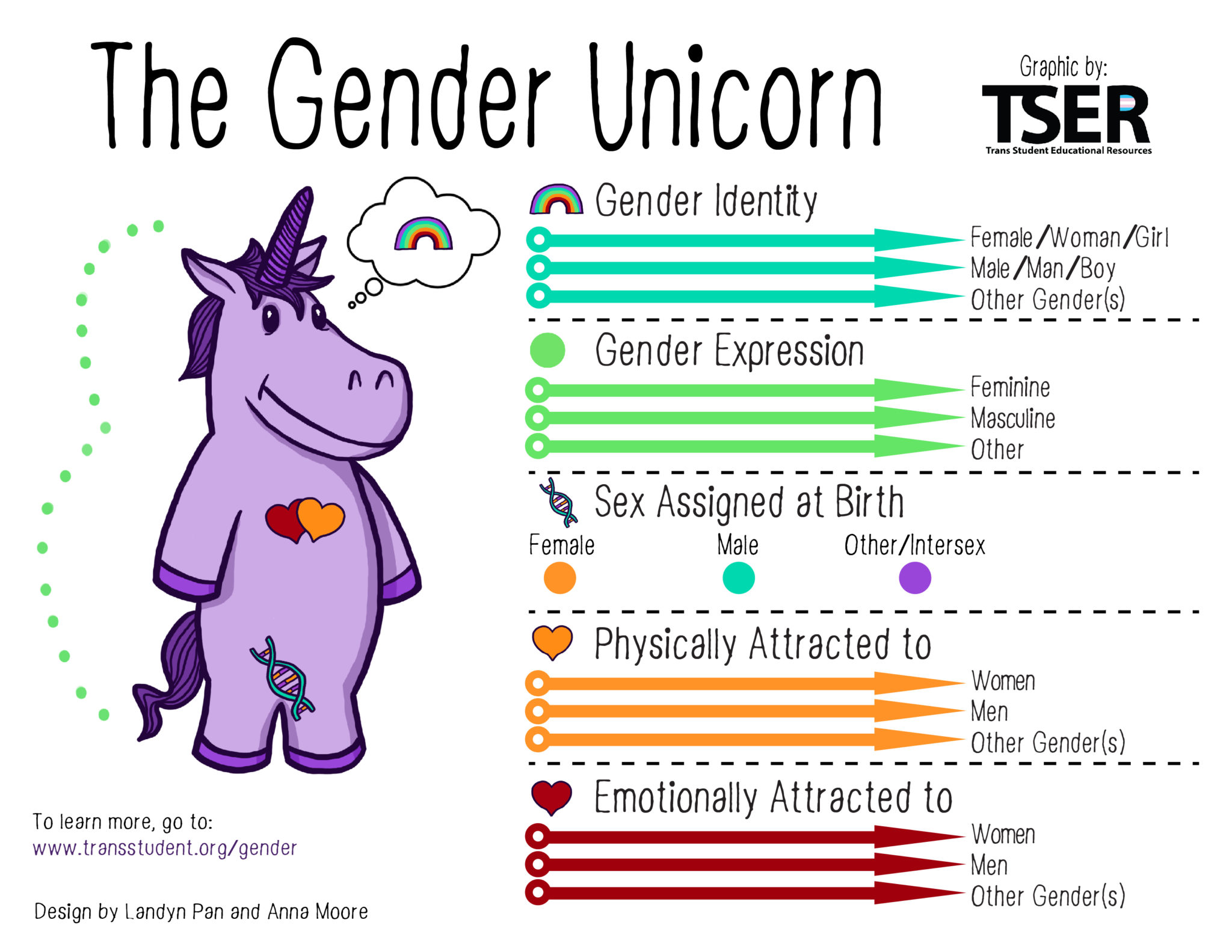Sex is ordinarily determined at fertilization. Our genetic code, either the presence of an XX or XY chromosomal composition, determines our sexed body. With extremely rare disordered exceptions the human organism begins down a road of male or female bodily differentiation.
Back to our Gender Unicorn for a moment.

You will notice under the section “Sex Assigned at Birth” a blue dot for “other/intersex.” In the past, what used to be called a “disorder” is now called by many a “difference.” In our decidedly ‘post-modern’ moment, a moment designed to disrupt the very concept of normal or the fact that a natural order exists, we are told by Gender Identity Ideologues that there are a variety of ways that humans can develop. Normal and abnormal categories are obsolete and quite frankly hurtful to those who have developed differently.
Of course any sensitive person is going to treat someone who has one of these rare disorders with love and respect. But we should not ignore the obvious for the purpose of advancing a gender fluid philosophical agenda. Christians can’t do that.
Also, it’s bad science.
Clinics are being pressured to reclassify “Disorders of Sexual Development” as “Differences of Sexual Development.” Some have adopted the new terminology over a concern about stigmatizing people.
But the distinction between order and disorder is operative everywhere in science and medicine. These categories are indispensable for understanding and directing treatments toward human well-being.
Disorders of sexual development (DSDs) occur in roughly one out of every 5,000 births. These disorders can result in ambiguous external genitalia and the incomplete development of reproductive organs. Chromosomal or hormonal defects produce these abnormalities. They are rightly regarded by most medical experts as pathologies in the development and formation of the male and female body. They are exceedingly rare.
But Gender Identity Ideologues use the fact of these rare disorders as a reason for positing a “third sex” “fourth sex” etc., along a spectrum of possibilities. They argue that because of these “differences” the old-fashioned male-female sex binary is obsolete. Some people are just non-binary, they say. As I wrote in a previous post this move is nothing more than the normalization of disorder for the purpose of pushing a gender expansive ideology. (At root this irrationality emanates from an ideology called Queer Theory.)
Remember the staff trainer, Elly Barnes? Here’s the graph from my post about Rev Randall :
In 2018 Rev Randall attended a staff seminar at Trent College, entitled “Educate and Celebrate.” He raised an objection when the leader, Elly Barnes, instructed the staff to chant ‘smash heteronormativity.’ For his anti-celebratory concerns he became a marked man at the college.
Barnes’ ideological, dare I say religious, fervor leaves little wiggle room for those like Reverend Randall and myself who believe God made us “male and female.” We don’t believe heteronormativity is oppressive and something to be “smashed.”
***
If you haven’t already added your email to my list, do so and I’ll let you know when the blog is updated.
Email: blog@blueridgemountain.life
